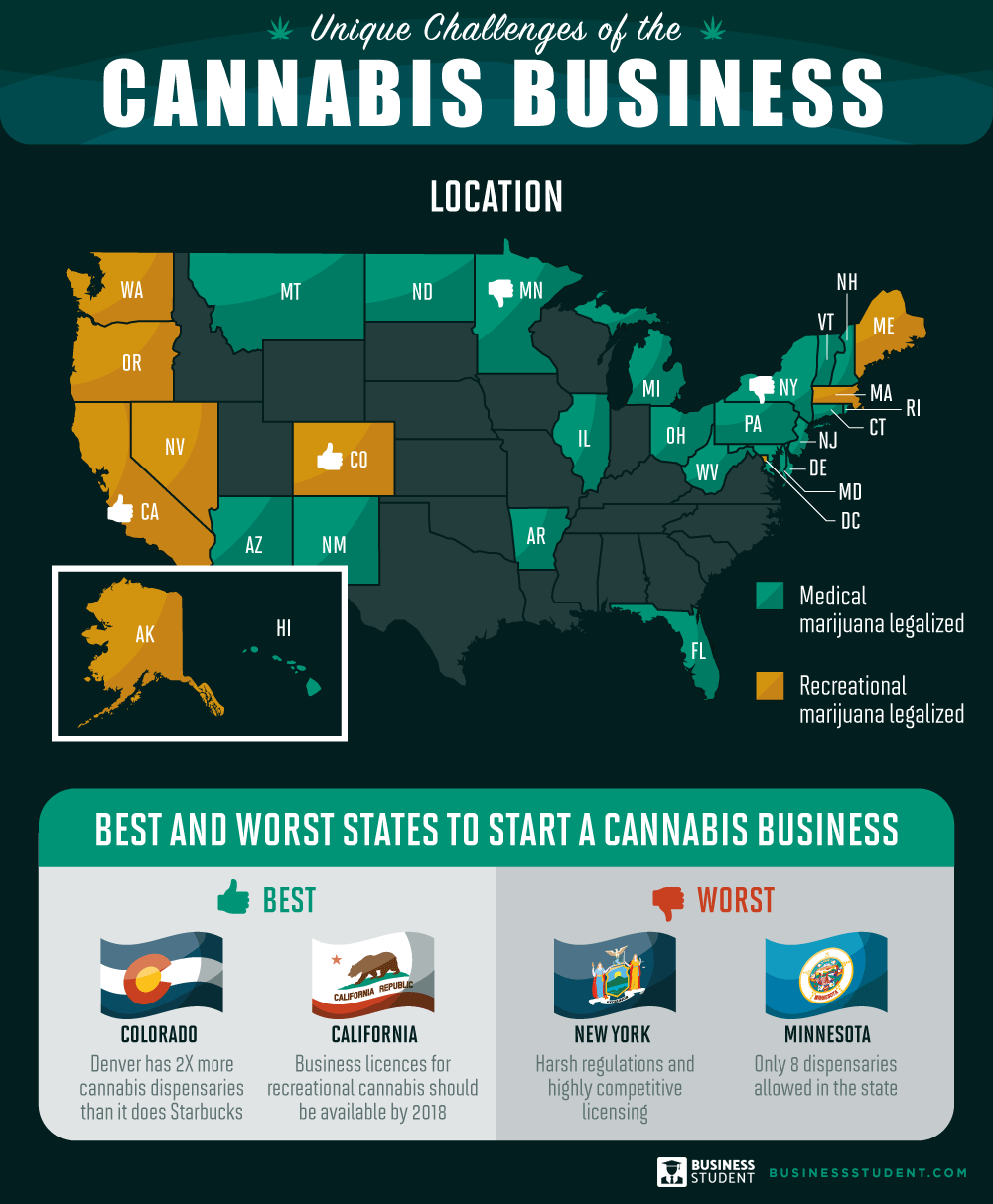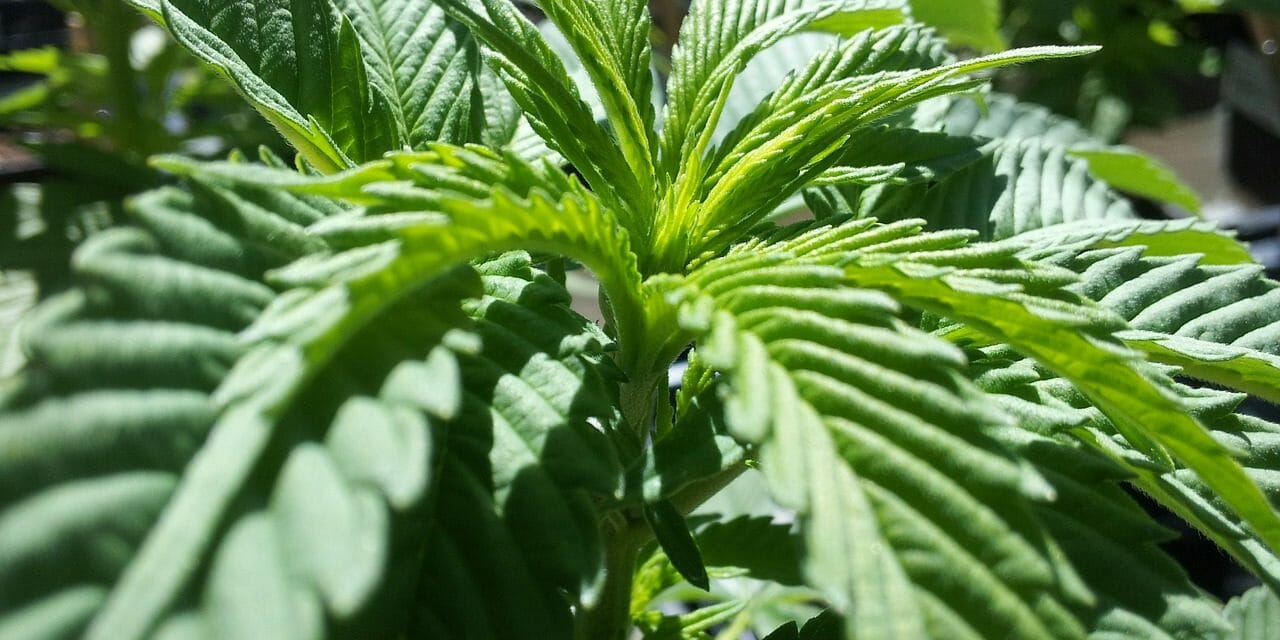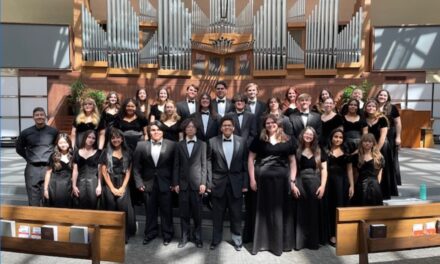Now that cannabis for medical or recreational use is legal in 29 states, including California, – or more than half of the country – is it fair game to be taught in higher education business classes?
With the addition of marijuana cultivation facilities locating in the Coachella Valley, should it be taught at College of the Desert and Cal State University, San Bernardino? Both Palm Desert-based schools have business programs.
 It’s expected to be a $24 billion industry by 2025 which means that it is a burgeoning industry that potentially has unlimited room for growth. But at the same time, competition is fierce and government regulations – both on the state and federal level – could have enormous implications for the Cannabis business.
It’s expected to be a $24 billion industry by 2025 which means that it is a burgeoning industry that potentially has unlimited room for growth. But at the same time, competition is fierce and government regulations – both on the state and federal level – could have enormous implications for the Cannabis business.
The bottom line is that it is definitely a “high” risk and “high” reward industry that is titillating and precarious at the same time.
The University of Cambridge just announced it will teach the first-ever “Seed to Sale” Cannabis Case Study to some of the brightest business school minds in the world.
With many other colleges set to follow suit, the team at BusinessStudent.com released: The Unique Challenges of The Cannabis Business — Report and Infographic.
Here are a few facts from the study:
Opportunities include:
- State tax revenue combined expected to total $2.3 billion by 2020
- 97 percent of recreational stores and 94 percent of medical stores make a profit or break even.
- Women executives in the industry is 27 percent; 4 percent higher than the national average
- Denver boasts twice as many cannabis dispensaries as it does Starbucks.
Risks include:
- In 2017, only 368 of 12,000 financial institutions in the U.S. served cannabis businesses.
- On Jan. 4, 2018, Attorney General Jeff Sessions rescinded Obama-era memos that assured cannabis businesses they would not be subject to federal prosecution as long as they followed their state’s laws.
So, would it make sense for Coachella Valley institutions of higher education to add the business of cannabis to their academic programming?
A medical cannabis cultivation facility in Cathedral City is expected to create 140 full-time jobs, with an average wage of $22 per hour, when it is fully operational.

Greg Pettis
“This is a brand new state-of-the-art facility that will highlight Cathedral City’s leadership role in California in cannabis,” Cathedral City Mayor Pro Tem Greg Pettis told Uken Report.
Construction is already underway near the intersection of Ramon Road and Date Palm Drive.
When completed, it is estimated to generate $5 million to $8 annually in taxes, Pettis said.
Cathedral City is the latest city to want a piece of the ever-popular medical cannabis market. A report by Grand View Research, Inc., projects that the global medical cannabis market will reach a value of $55.8 billion by 2025. The United States is a major market for the new growing industry. By the end of 2016, 28 states now have laws and regulation in place to legally buy and sell medical cannabis.
About 20 acres of land will be used to construct Sunrise Campus, a large-scale purpose-built Good Manufacturing Processes (GMP) greenhouse for the cultivation of medical cannabis.
Sunrise Campus will be constructed in two phases. Phase I, which is expected to break ground yet this year, is scheduled for completion in the spring of 2018. The company plans to break ground on Phase 2 of the facility in late 2018. Sunrise Campus Phase I is expected to produce more than 81,000 kg of dried cannabis per year.
When complete, Phase II should add 45,000 kg of dried cannabis to the facility’s annual production. Sunniva plans to dedicate more than half of its California production to oils, extracts and other derivatives.
“Sunrise Campus will be a GMP compliant facility, deploying the latest in technology and automation,” said Holler said in a prepared statement. “Good Manufacturing Processes (GMP) are practices required in order to conform to the guidelines recommended by agencies that control authorization and licensing for manufacture and sale of food and drug products, and active pharmaceutical products.”
Desert Hot Springs and Coachella have announced that they, too, are welcoming medical cannabis cultivation facilities to their respective communities.


![Enrolling Now, Rewarding Careers Ahead [Sponsored]](https://ukenreport.com/wp-content/uploads/2024/04/COD_heroes_1-1385-2-440x264.jpg)




